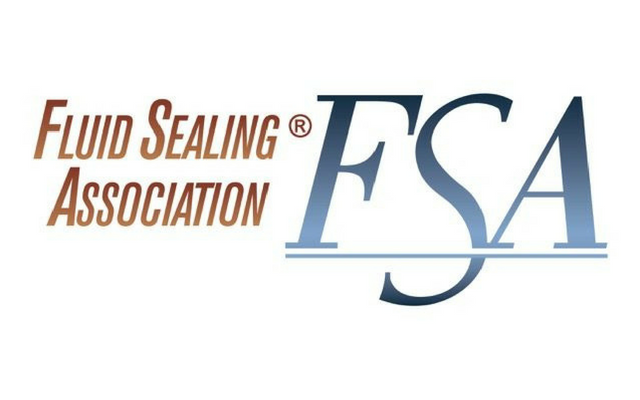

These courses are being held at the Fugitive Emissions Summit. Courses #1 and #2 will be held concurrently in the morning. Courses #3 and #4 will be held concurrently in the afternoon. Registration for the day is $499 per person. Go to http://www.fluidsealing.com/short-course-registration-form/ to register.
#1- Flange Sealing Installation Best Practices
Flange leakage in emissions service can result in loss production and money. If a plant is going to reduce emissions at a plant, one important step that is often overlooked is procedures of flange sealing. This training will focus on the Fluid Sealing Association’s best practices for successful flange sealing including gasket seating stresses, torque calculations, and gasket selection. Some other topics that will be discussed are the following: Flange and bolts inspection, Flange Condition, Torque patterns, Anti-seize and K factor, Alignment, Flange Rotation, Heat Exchangers, Nut Embedment. Instructors: Ron Frisard, AW Chesterton Co. and Laverne Fernandes, Garlock Sealing Technologies.
#2 – Mechanical Seals 101
This course is aimed at rotating equipment professionals who would like to understand mechanical seals, their different support systems, and basic mechanical seal component failure analysis. The course will consist of an introduction to mechanical seals that will focus on mechanical seal operating principles and classifications. Further discussion will focus on the different seal support designs (piping plans) and their role in mechanical seal health and reliability. The course will finish with a review of basic mechanical seal component failures and their common causes. Upon completion of the course, attendees will have a basic understanding of how mechanical seals work and what is needed to operate them reliably. Instructor: Glenn Owens, Flowsesrve.
#3 – Valve Installation Best Practices for Fugitive Emissions Service
This training will focus on identifying best practices in regards to valve packing installation as outlined by the Fluid Sealing Association. The best valve packing installed incorrectly will not ensure compliance to LDAR requirements. It is imperative that a plant have a serious, focused, approach to this important subject. One way to improve this is by creating a continuous improvement process regarding valve packing that is fact based and focusing on Identifying and classifying root causes of packing performance. Some of the points that the training will include: Accurate measuring of valve dimensions, Observing valve issues that could hinder sealing, Installation of packing, Torque and bolting considerations for Low E sealing, Consolidation of packing, Multi-discipline continuous improvement program focusing on root causes of packing failures. Instructors: Ron Frisard, AW Chesterton Co. and Rob Garlock, EGC Enterprises.
#4 – Rubber Expansion Joints: Basic Applications to Advanced Solutions
Pump piping engineers demand optimal piping systems with a smaller footprint, lower construction cost, improved energy efficiency, modular construction and with less structural support. Rubber Expansion Joints help meet these requirements by reducing the need for cumbersome main anchors, numerous guides and/or rigid piping loops. Featuring low stiffness and high movement, expansion joints accept damaging pipe stresses such as pipe strain, thermal expansion, shock and vibration loads, ground settlement and external displacement forces. With a rugged construction, cycle life in the tens of millions and superior chemical and abrasion resistance, rubber expansion joints help also to improve piping system uptime and reliability. This two-part presentation focuses on the design, selection and application of rubber expansion joints, including restrained and unrestrained arrangements. Content focuses on using rubber expansion joints as part of best piping practices, pumping system optimization, and plant reliability and efficiency improvements. The webinar will also discuss how to take a FMEA approach for improvement assessment of failure modes and conducting plant surveys to virtually eliminate unplanned downtime.
Part I: Features and benefits of performance rubber expansion joints, Applying restrained and unrestrained expansion joint arrangements effectively, Identifying sources of damaging pipe stresses and consequences of neglecting them, Optimizing systems with footprint and energy consumption reductions, Minimizing loads on piping, equipment and support structure, Reducing material and construction costs, Key elements of piping codes (ex. ASME B31.1, B31.3) and standards (ex. ANSI/HI 9.6.2, 9.6.6) for seamless integration.
Part II: Developing a plant reliability and efficiency program, Incorporating a condition-based preventive maintenance program, Taking an FMEA approach with improved assessment of failure modes, Conducting plant surveys with traditional and advanced inspection methods, Resources including: data sheets, guideline specifications, application demos, solid model images, installation instructions, case studies and more.
The presentation is ideal for industry professionals involved with designing or specifying pump piping systems or responsible for maintaining or selecting rubber expansion joints. Instructor: Lloyd Aanonsen, General Rubber Co.